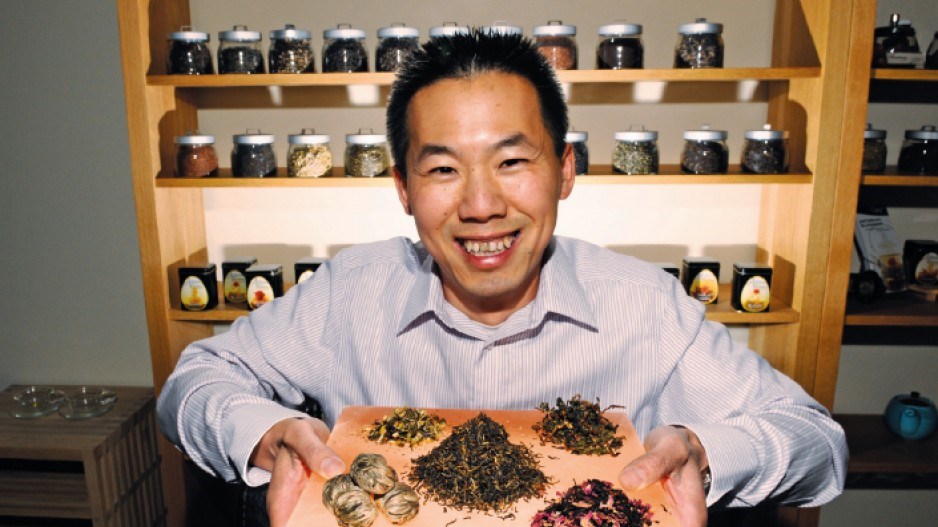Where tea is grown makes a big difference in how it tastes. That’s why Gregory Lui, the master tea blender for Vancouver-based Black Tusk Trading, imports tea from all the major tea-growing areas, including Sri Lanka, Taiwan, China, India and Japan. He’s recently added a new region to the roster: Indonesia.
“Their taste profile is really unique … the micro-climate’s different, the soil’s different, the region is different,” said Lui.
The company supplies organic tea to stores like Whole Foods and Urban Fare under the brand Esprit Tea.
Island Abbey Foods, a PEI-based food company with a sales office in Vancouver, was surprised to discover a demand for their honey products in Asia. The company has developed a proprietary process to suspend honey in a solid state and makes sweetener, candy and throat lozenges. Island Abbey Foods now ships its product to Japan, Hong Kong, China and South Korea.
“A lot of people in North America know that honey is good for them … but in Asian culture, it’s actually in their medical practice,” said John Rowe, president and founder of Island Abbey Foods. “In Chinese and Indian ayurvedic medicine, honey is used in about half of the formulations.”
These two Canadian businesses have found that whether importing from or exporting to Asia, making connections with industry insiders from those countries is vital. Having a trusted customs broker to guide your company through the complicated process of moving goods around the world is also key.
Show and tell
While Lui travels to about half of the tea gardens he orders from, trade shows are also a great way to make global connections.
At the World Tea Expo in Las Vegas, which Lui attends every year, he discovered that several plantations in Indonesia had been making an effort to improve the quality of their tea, which once had a poor reputation. The plantations had also committed to the three-year process of becoming organic.
At the trade show, Lui made contact with a marketing rep from one of the plantations, requested samples of the tea and then began importing the product.
He has also made important connections with food brokers, who he sometimes hires to inspect the product before it is shipped.
“I try to find reps all over the region,” said Lui. “I may not use them this month or this year, but I usually keep in touch with everyone because I never know when I will need them.”
If you have a new product you want to introduce to an international audience, trade shows are also the way to go, said Rowe.
Island Abbey Foods appears at exhibitions across Canada and the U.S., as well as SIAL Paris, which Rowe calls “the biggest food event on the planet.”
Trade shows have also yielded connections for Honibe with wholesaler distributors. The wholesalers, who have an in-depth knowledge of their home market, then take over selling Honibe to retailers.
From A to B
Once connections are made, ensuring that the products get to where they need to go can be facilitated with the help of a broker. This is especially important when there are regulatory gateways to deal with.
Black Tusk uses Kuehne Nagel’s “end-to-end” service.
“I tell them where exactly the plantation is and they get their local reps to get the documentation ready,” said Lui.
“They truck it to the port and get it on board the ship with all the correct documentation. When it arrives at the Port of Vancouver, they get a local truck to truck it to our warehouse.”
Leana Breivik, a broker with Kuehne Nagel, said companies need to take the time to learn about their business, in part because the importer is held “100% responsible” for any errors, and financial penalties can be steep.
By letting clients know about changes in regulations and by assisting with audits, a broker can eliminate a lot of expenses, said Breivik.
Island Abbey Foods uses different brokers and different levels of services depending on where the company is shipping to.
“There are some instances where we don’t need a full brokerage service,” said Rowe. “But if it’s a new market for us we go with somebody who can do the end-to-end solution.”




